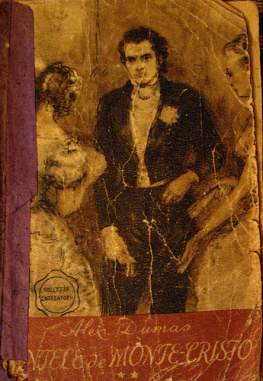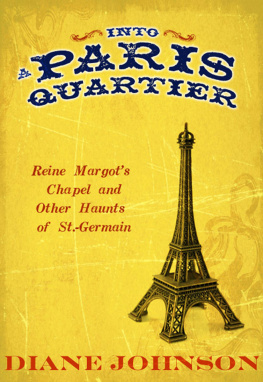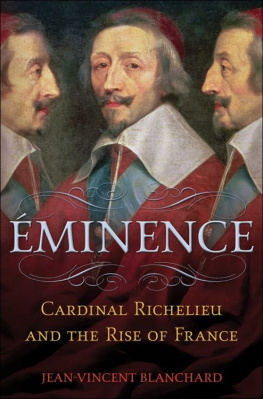Alexandre Dumas - The Three Musketeers (Dover Thrift Editions)
Here you can read online Alexandre Dumas - The Three Musketeers (Dover Thrift Editions) full text of the book (entire story) in english for free. Download pdf and epub, get meaning, cover and reviews about this ebook. year: 2007, publisher: Dover Publications, genre: Art. Description of the work, (preface) as well as reviews are available. Best literature library LitArk.com created for fans of good reading and offers a wide selection of genres:
Romance novel
Science fiction
Adventure
Detective
Science
History
Home and family
Prose
Art
Politics
Computer
Non-fiction
Religion
Business
Children
Humor
Choose a favorite category and find really read worthwhile books. Enjoy immersion in the world of imagination, feel the emotions of the characters or learn something new for yourself, make an fascinating discovery.

- Book:The Three Musketeers (Dover Thrift Editions)
- Author:
- Publisher:Dover Publications
- Genre:
- Year:2007
- Rating:3 / 5
- Favourites:Add to favourites
- Your mark:
- 60
- 1
- 2
- 3
- 4
- 5
The Three Musketeers (Dover Thrift Editions): summary, description and annotation
We offer to read an annotation, description, summary or preface (depends on what the author of the book "The Three Musketeers (Dover Thrift Editions)" wrote himself). If you haven't found the necessary information about the book — write in the comments, we will try to find it.
The Three Musketeers (Dover Thrift Editions) — read online for free the complete book (whole text) full work
Below is the text of the book, divided by pages. System saving the place of the last page read, allows you to conveniently read the book "The Three Musketeers (Dover Thrift Editions)" online for free, without having to search again every time where you left off. Put a bookmark, and you can go to the page where you finished reading at any time.
Font size:
Interval:
Bookmark:

Published: 1844
Type(s): Novels, History, Romance, Adventure
Source: http://www.gutenberg.org
Alexandre Dumas, pre, born Dumas Davy de la Pailleterie (July24, 1802 December 5, 1870) was a French writer, best known forhis numerous historical novels of high adventure which have madehim one of the most widely read French authors in the world. Manyof his novels, including The Count of Monte Cristo, The ThreeMusketeers, and The Man in the Iron Mask were serialized, and healso wrote plays and magazine articles and was a prolificcorrespondent. Source: Wikipedia
- The Count of MonteCristo (1845)
- Twenty YearsAfter (1845)
- Ten YearsLater (1848)
- The Vicomte ofBragelonne (1847)
- The BlackTulip (1850)
- TheBorgias (1840)
- Louise de laValliere (1849)
- Ali Pacha(1840)
- Murat(1840)
- MartinGuerre (1840)
http://www.feedbooks.com
Strictly for personal use, do not use this file for commercialpurposes.
In which it is proved that, notwithstanding their names' endingin OS and IS, the heroes of the story which we are about to havethe honor to relate to our readers have nothing mythological aboutthem.
A short time ago, while making researches in the Royal Libraryfor my History of Louis XIV, I stumbled by chance upon the Memoirsof M. d'Artagnan, printedas were most of the works of that period,in which authors could not tell the truth without the risk of aresidence, more or less long, in the Bastilleat Amsterdam, byPierre Rouge. The title attracted me; I took them home with me,with the permission of the guardian, and devoured them.
It is not my intention here to enter into an analysis of thiscurious work; and I shall satisfy myself with referring such of myreaders as appreciate the pictures of the period to its pages. Theywill therein find portraits penciled by the hand of a master; andalthough these squibs may be, for the most part, traced upon thedoors of barracks and the walls of cabarets, they will not find thelikenesses of Louis XIII, Anne of Austria, Richelieu, Mazarin, andthe courtiers of the period, less faithful than in the history ofM. Anquetil.
But, it is well known, what strikes the capricious mind of thepoet is not always what affects the mass of readers. Now, whileadmiring, as others doubtless will admire, the details we have torelate, our main preoccupation concerned a matter to which no onebefore ourselves had given a thought.
D'Artagnan relates that on his first visit to M. de Treville,captain of the king's Musketeers, he met in the antechamber threeyoung men, serving in the illustrious corps into which he wassoliciting the honor of being received, bearing the names of Athos,Porthos, and Aramis.
We must confess these three strange names struck us; and itimmediately occurred to us that they were but pseudonyms, underwhich d'Artagnan had disguised names perhaps illustrious, or elsethat the bearers of these borrowed names had themselves chosen themon the day in which, from caprice, discontent, or want of fortune,they had donned the simple Musketeer's uniform.
From the moment we had no rest till we could find some trace incontemporary works of these extraordinary names which had sostrongly awakened our curiosity.
The catalogue alone of the books we read with this object wouldfill a whole chapter, which, although it might be very instructive,would certainly afford our readers but little amusement. It willsuffice, then, to tell them that at the moment at which,discouraged by so many fruitless investigations, we were about toabandon our search, we at length found, guided by the counsels ofour illustrious friend Paulin Paris, a manuscript in folio,endorsed 4772 or 4773, we do not recollect which, having for title,"Memoirs of the Comte de la Fere, Touching Some Events Which Passedin France Toward the End of the Reign of King Louis XIII and theCommencement of the Reign of King Louis XIV."
It may be easily imagined how great was our joy when, in turningover this manuscript, our last hope, we found at the twentieth pagethe name of Athos, at the twenty-seventh the name of Porthos, andat the thirty-first the name of Aramis.
The discovery of a completely unknown manuscript at a period inwhich historical science is carried to such a high degree appearedalmost miraculous. We hastened, therefore, to obtain permission toprint it, with the view of presenting ourselves someday with thepack of others at the doors of the Academie des Inscriptions etBelles Lettres, if we should not succeeda very probable thing, bythe byin gaining admission to the Academie Francaise with our ownproper pack. This permission, we feel bound to say, was graciouslygranted; which compels us here to give a public contradiction tothe slanderers who pretend that we live under a government butmoderately indulgent to men of letters.
Now, this is the first part of this precious manuscript which weoffer to our readers, restoring it to the title which belongs toit, and entering into an engagement that if (of which we have nodoubt) this first part should obtain the success it merits, we willpublish the second immediately.
In the meanwhile, as the godfather is a second father, we begthe reader to lay to our account, and not to that of the Comte dela Fere, the pleasure or the ENNUI he may experience.
This being understood, let us proceed with our history.
On the first Monday of the month of April, 1625, the market townof Meung, in which the author of ROMANCE OF THE ROSE was born,appeared to be in as perfect a state of revolution as if theHuguenots had just made a second La Rochelle of it. Many citizens,seeing the women flying toward the High Street, leaving theirchildren crying at the open doors, hastened to don the cuirass, andsupporting their somewhat uncertain courage with a musket or apartisan, directed their steps toward the hostelry of the JollyMiller, before which was gathered, increasing every minute, acompact group, vociferous and full of curiosity.
In those times panics were common, and few days passed withoutsome city or other registering in its archives an event of thiskind. There were nobles, who made war against each other; there wasthe king, who made war against the cardinal; there was Spain, whichmade war against the king. Then, in addition to these concealed orpublic, secret or open wars, there were robbers, mendicants,Huguenots, wolves, and scoundrels, who made war upon everybody. Thecitizens always took up arms readily against thieves, wolves orscoundrels, often against nobles or Huguenots, sometimes againstthe king, but never against cardinal or Spain. It resulted, then,from this habit that on the said first Monday of April, 1625, thecitizens, on hearing the clamor, and seeing neither thered-and-yellow standard nor the livery of the Duc de Richelieu,rushed toward the hostel of the Jolly Miller. When arrived there,the cause of the hubbub was apparent to all.
A young manwe can sketch his portrait at a dash. Imagine toyourself a Don Quixote of eighteen; a Don Quixote without hiscorselet, without his coat of mail, without his cuisses; a DonQuixote clothed in a woolen doublet, the blue color of which hadfaded into a nameless shade between lees of wine and a heavenlyazure; face long and brown; high cheek bones, a sign of sagacity;the maxillary muscles enormously developed, an infallible sign bywhich a Gascon may always be detected, even without his capand ouryoung man wore a cap set off with a sort of feather; the eye openand intelligent; the nose hooked, but finely chiseled. Too big fora youth, too small for a grown man, an experienced eye might havetaken him for a farmer's son upon a journey had it not been for thelong sword which, dangling from a leather baldric, hit against thecalves of its owner as he walked, and against the rough side of hissteed when he was on horseback.
Font size:
Interval:
Bookmark:
Similar books «The Three Musketeers (Dover Thrift Editions)»
Look at similar books to The Three Musketeers (Dover Thrift Editions). We have selected literature similar in name and meaning in the hope of providing readers with more options to find new, interesting, not yet read works.
Discussion, reviews of the book The Three Musketeers (Dover Thrift Editions) and just readers' own opinions. Leave your comments, write what you think about the work, its meaning or the main characters. Specify what exactly you liked and what you didn't like, and why you think so.




